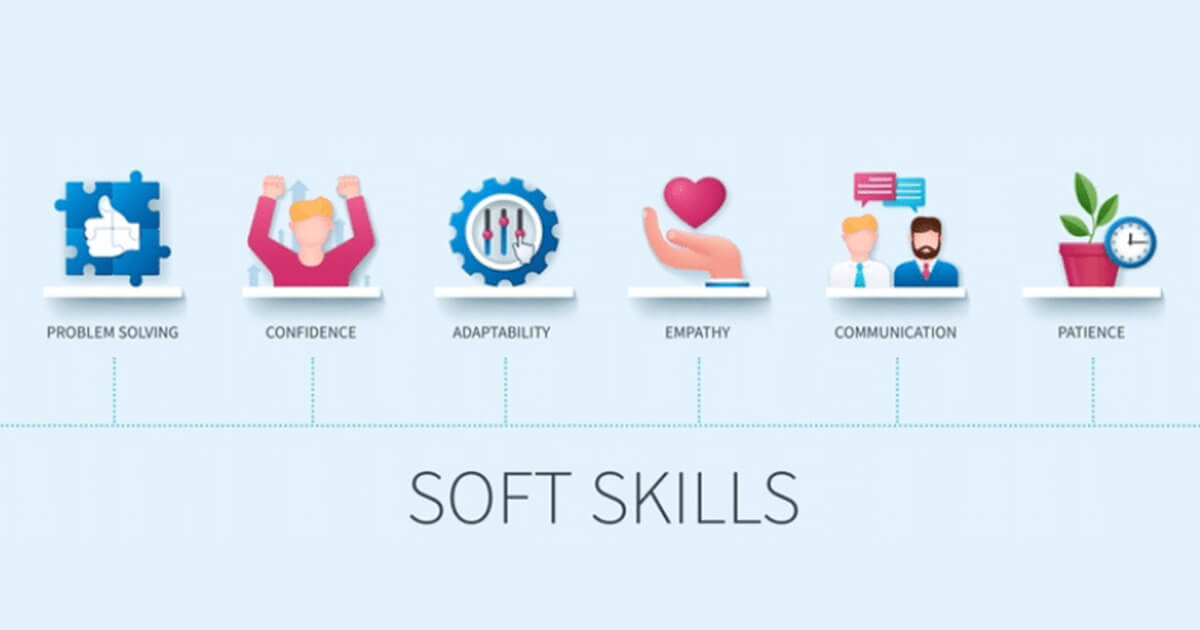
Which Soft Skills Can You Learn Through Professional Training?
You might be great at your job, technically sound, detail-oriented, and reliable. But here’s the thing: in most workplaces, that’s just the starting point. What truly sets professionals apart is how they communicate, adapt, and lead when the unexpected happens.
Soft skills are often overlooked, but they play a significant role in how effectively you work with others, respond to pressure, and move forward in your career. And no, they’re not just traits you’re born with. With the proper training, they can be developed, refined, and strengthened over time.
In this article, we’ll walk through the key soft skills you can build through professional training and why they matter more than ever in today’s evolving work environment.
What are Soft Skills?
They are the interpersonal abilities that shape your interactions and the way you handle situations at work.
Here are a few soft skills examples in real-world settings:
- The ability to explain and deliver ideas clearly in a meeting.
- Staying calm under pressure while managing tight deadlines
- Participate actively in pitching ideas and hearing others when working in teams
These skills aren’t tied to a specific industry; they are helpful and complement your technical expertise across all kinds of roles. Not only do they support your professional growth, but they also play a significant part in building your personality.
Top 5 Soft Skills You Can Build Through Training
Here is a top 5 soft skills list that you should develop:
1. Communication
Effective communication occurs when you share your ideas and deliver them in a way that people understand. A great example of a good communicator is a salesperson. They pitch their product to you so effectively that you may want to invest in their stuff, even if you had no plans to.
Hence, how and what you talk to someone is essential. Whether you’re presenting business strategies, negotiating deals, or managing a team, effective communication skills are essential for growth.
Here is what you can learn through soft skills training:
- How to organise your thoughts before you speak
- Adjusting your tone: switching between low and high pitch to grab attention and break monotony
- Listening actively before responding with clarity
- Using non-verbal cues like eye contact and body language to make your message more effective.
2. Emotional Intelligence
What is emotional intelligence? It’s the ability to understand and manage your own emotions while empathising with others. It’s what helps you stay calm in stressful situations, accept feedback without getting defensive, and read the room effectively.
People with high EQ tend to build stronger relationships at work. They know what to say and when to listen to others. They’re also able to accept mistakes and respond logically, without letting emotions take over.
With the help of soft skills training, you can learn how to:
- Recognise your emotional triggers and manage them better
- Stay composed during high-pressure situations
- Put yourself in others’ shoes and respond with empathy
- Handle constructive criticism and setbacks in a healthy way.
3. Adaptability
Nowadays, one must know how to adapt to situations if things don’t go as planned. Change can be anything; for example, during COVID, we were introduced to the concept of working from home. Many companies adapted quickly, while others struggled or went out of business due to their resistance to change..
Soft skills training can help you:
- Develop a growth mindset
- Stay productive even when working outside your comfort zone
- Embrace feedback and adjust without feeling overwhelmed
- Build confidence in uncertain or evolving situations.
4. Critical Thinking and Problem-Solving
Critical thinking and problem-solving involve carefully analyzing a situation from various aspects before drawing a conclusion. They help you break down a problem into simpler parts to find smart solutions quickly.
In real-world scenarios, developing this skill will enable you to thoroughly investigate the issue to identify the root cause of its recurrence. It also allows you to build a contingency plan if the first one doesn’t work.
Through soft skills training, you can learn how to:
- Analyse and respond to situations logically
- Use Socratic questioning to develop a deep understanding of a topic
- Weigh pros and cons before making decisions
- Develop creative solutions while being realistic.
5. Leading with Confidence
Leadership isn’t about being an authority figure and giving out orders. A good leader takes initiative, guides others, and makes decisions, considering the best interests of the whole team.
To develop leadership qualities, you must learn to listen to others, respect others’ opinions, and build an environment where each of your team members can thrive
These soft skills training can help you:
- Build confidence to take the lead in group settings
- Communicate your vision clearly and motivate your team
- Make decisions while considering both logic and empathy
- Give and receive feedback in a constructive way.
Conclusion
To wrap it all up, technical knowledge may get your foot in the door, but soft skills are what truly help you grow, lead, and thrive in the workplace. With professional training, you can learn them and develop your personality.
At Hunar Foundation, we offer specialized soft skills training programs designed to help you build confidence and provide you with practical tools to succeed. So, join today and lead a better future for yourself.

